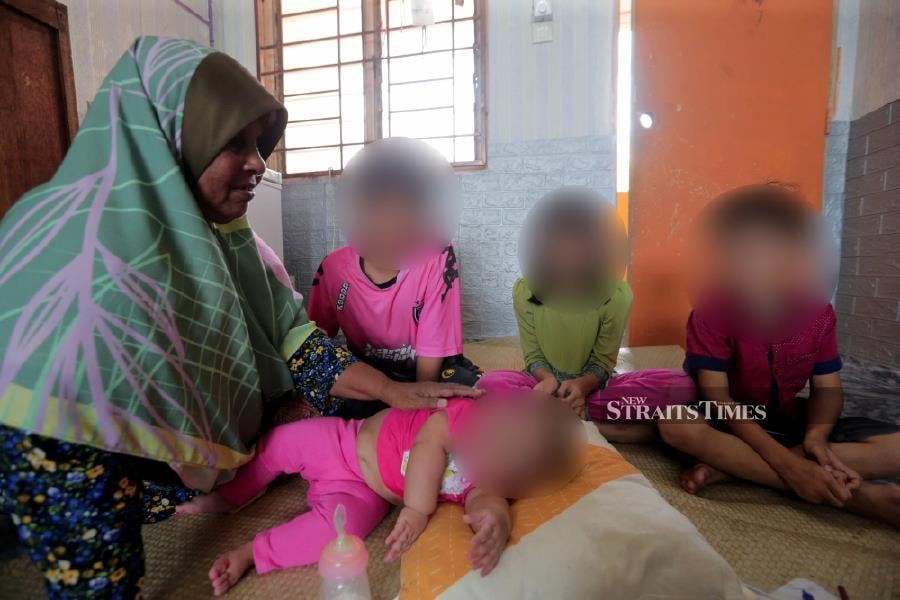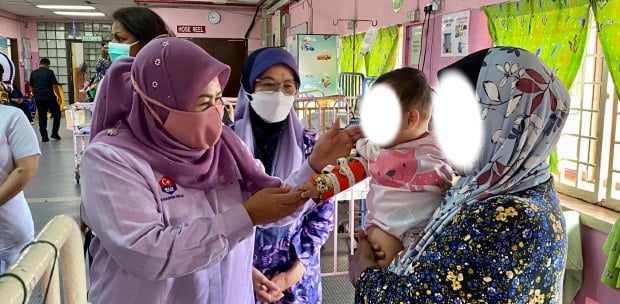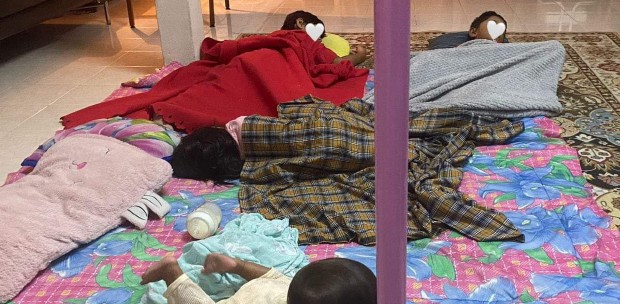JOHOR BARU: A seven-month-old prematurely born baby girl– the youngest of four siblings abandoned by their syabu-addicted mother– is cleft-lipped and diagnosed with acute bronchiolitis.
She is a suspected victim of child abuse too.
The siblings are now under the care of their ageing, illiterate, jobless grandmother, who fends for them in an unfurnished People's Housing Project (PPR) flat in Kempas Permai here.
The infant was entrusted to her grandmother by the court in Ipoh, Perak, after the her mother was deemed unfit to be her legal custodian.
She was allegedly scalded by hot water, and has burn scars on her left shin.
To make matters worse, her parents, who are believed to be currently imprisoned for drug-related offences, did not register her birth.
She requires corrective surgery immediately, however, is unable to do so given that she does not have a birth certificate.
She is constantly plagued with frequent illnesses, including fever, flu, cough, and breathing difficulties.
Both she and her siblings are now in the custody of their 68-year-old grandmother Normah Asinar, who has a set of her own problems, including health, financial woes and the fact that she is unable to read, making her clueless in finding assistance from the relevant bodies.
Normah, who has been suffering from high blood pressure and limited mobility due to a previous leg injury, relies on monthly assistance from the Social Welfare Department and Baitulmal's aid amounting to RM1,000.
She desperately needs the relevant government agencies to help her obtain a birth certificate for her youngest granddaughter to undergo the surgery.
The siblings who cannot be named to protect their identities consist of two girls (the seven-month-old infant and a 10-year-old) and two boys aged 11 and six, and are of mixed parentage– both Malaysian.
There are no legal documents to prove that their 34-year-old mother was married to their father, who is said to be a local of Chinese descent.
However, the first three children have birth-certificates.
Normah, revealed to the New Straits Times, on how the children ended up in her care.
The widower was residing in Labis, Segamat, then, in her ill-stricken mother's house, when she received a call at 3am from an officer who identified herself as a welfare officer.
The officer said Normah's youngest daughter had abandoned her son at birth at a hospital in Ipoh.
Normah was instructed to pick him up immediately, and that she would be given temporary custody.
She said although her daughter was a teenage run-away due to her drug-addiction and had lost contact with her, she could not bear the thought of abandoning her grandson.
She took him in and cared for him in Labis, where she shared the house with her sickly mother, her brother and his family.
Normah sold snacks and tit-bits to fend for herself, and had enrolled her grandson in a Chinese vernacular school. His education was supported by the school-alumni association.
Normah, who married-young, is not educated, claiming that her parents were too poor to send her to school.
She had three-children with her now-deceased-husband. Her eldest daughter, Siti Fatimah, died young due to health complications. Her second child is in an institution for the mentally-unsound, while the youngest ran-away young and eventually lost contact.
She said a year later, another officer contacted her to inform her that her granddaughter was found sleeping on the streets and she was to come and take her.
She made the trip to Ipoh once again. Some five years later, she received another call; the boy was abandoned at a hospital.
Normah had three toddlers to take care of without a stable income or family-support.
The burden and pressure of taking care of the children proved to be overwhelming for the rest of Normah's family members who shared the house.






